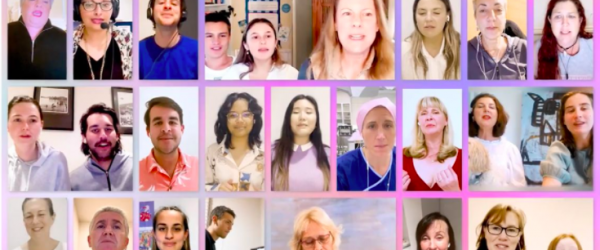Service planning in perinatal psychiatry
DEVELOPMENT OF A SPECIALIST PERINATAL PSYCHIATRIC SERVICE IN THE HUNTER REGION OF NSW: IS THIS A GOOD MODEL TO FOLLOW?
Eilis McKensey, Perinatal Service, John Hunter Hospital, Newcastle, NSW
Psychiatric disorders associated with childbirth are well documented in the literature. However, both the Maternity Services Review in NSW in 1989 and the NSW Review of Postnatal Depression Services in 1993 suggested that these conditions are not recognised or managed well by the community and health services. Guidelines for management made by these review committees suggested that the recommendations be adapted and implemented at a local level in conjunction with the mainstream services across NSW. The following paper describes how the Hunter Region of NSW has implemented some of these recommendations.
The Hunter Region, an area including the city of Newcastle and outlying rural areas, did not have access to local specialist perinatal psychiatric services. Women with psychiatric disorder requiring admission to hospital with their babies were admitted in general psychiatric units or private psychiatric units. Assessment and management of postnatal disorders were seen by private psychiatrist, community health clinic, family care cottages or often not at all. As part of the Hunter Area Health Service's response to the above reviews, money was allocated to develop a specialist perinatal service. The experience of setting up this service, although not yet complete, illustrates not only the difficulties but the feasibility of developing such services and should provide both encouragement and valuable lessons for other Health Regions attempting a similar venture.
THE EASTERN SYDNEY POSTNATAL DEPRESSION FAMILY SUPPORT SERVICE: A 2-YEAR REVIEW OF A PERINATAL MENTAL HEALTH SERVICE
Marie-Paul Austin, M Dudley, C Dixon, C Launders
Eastern Sydney Postnatal Family Support Service, NSW
Introduction: It has now been demonstrated that acute psychiatric illness in the perinatal period, especially depression (PND), often goes undiagnosed and untreated, and can result in long term problems for the mother and her relationship with her infant and other family members. Clearly an early intervention approach is crucial in this client group. Unfortunately, however, many mothers suffering from PND cannot access appropriate services or are afraid to seek psychiatric assistance whilst services comprehensively targeting perinatal mental health are virtually non existent.
Method: Clients, referred by primary health care workers, are seen by our mental health nurses at home for initial psychiatric evaluation. Baseline questionnaires are filled out and a provisional diagnosis and management plan are made after discussion with the psychiatric consultant. The nurses then implement the intervention in the home involving family members as appropriate. Review of clients by a psychiatrist is available as required. Outcome in terms of EPDS, mother-infant interaction, and level of function, post intervention will be highlighted.
Outcome in our sample is compared to that in a matched sample from another Health Area where no intervention was offered. A cost benefit analysis is also presented.
Conclusion: This paper illustrates the use of highly trained mental health nurses, with close supervision by the psychiatric consultants, in providing an accessible, cost-effective service with good clinical outcome for both mother and infant. We believe it may serve as a model of care for other health services seeking to provide comprehensive mental health care in the perinatal period.
PSYCHIATRY AND THE FAMILY CARE COTTAGE
Peter Evans, Illawarra Area Health Service, NSW
Concern continues to be expressed about how little of our valuable knowledge about perinatal psychiatry is being translated into the "everyday" world of clinical practice. Primary and secondary services deliver the majority of care to this population, but they require expansion and their access to psychiatric consultation is often problematic. This paper will present one attempt to deal with these issues, describing the first 9 months of a consultancy by a psychiatrist to 2 Family Care Cottages in the Illawarra (70km south of Sydney).
The Cottages are staffed by Early Childhood Nurses and intermittently by a psychologist and social worker. They service an area with a coastline of about 200km and a population of 300 000. Since mid-1996, a psychiatrist has visited the cottage fortnightly. The paper will describe the rationale for the consultancy, how the consultancy was established, the roles of the consultant with an emphasis on the value of the methods of mental health consultation as described by Caplan, an evaluation of the acceptability of the consultation to cottage staff and discussion of the relevance to consumers of the availability of psychiatric consultation in this setting.
Local resource and administrative issues, which may have relevance to both metropolitan and non-metropolitan areas, will be described. The paper will conclude with discussion of how the consultancy can be integrated in a comprehensive response by psychiatric services to the needs of families in the perinatal period.
The emphasis will be on the creativity (and good luck!) needed to best use existing resources in a time of economic restraint.
NSW HEALTH DEPARTMENT POSTNATAL DEPRESSION EDUCATION FOR NURSES
Catherine Fowler, N Kowalenko, C Fraser, A DeBelin
Tresillian Family Care Centres, NSW
In 1994 the NSW Health Department Postnatal Depression Services Review identified the need for health professionals to have increased access to postnatal depression education. Tresillian Family Care Centres tendered for the nurse education component of the NSW Health Department's PND Education project and were successful tenderers to co-ordinate the provision of postnatal depression education for nurses in NSW. A 'Train the Trainer' model has been used to increase access to these workshops and to develop a core group of nurses with the required PND knowledge and skills in NSW. The workshops have been piloted in Sydney and rural areas.
This paper will discuss the approach to the development, implementation and evaluation of the 1997 pilot for the PND Foundation and Advanced Skills workshops for nurses. A brief summary of the content of the programs and initial outcomes of the pilot programs are anticipated to demonstrate the effectiveness of this educational approach.





